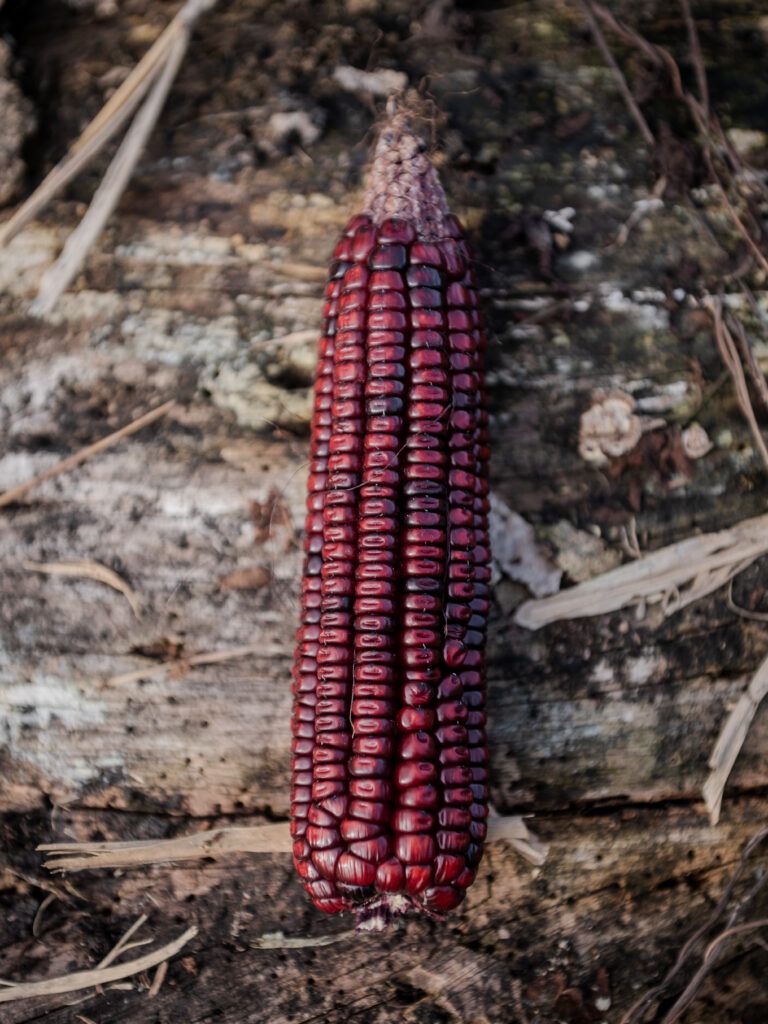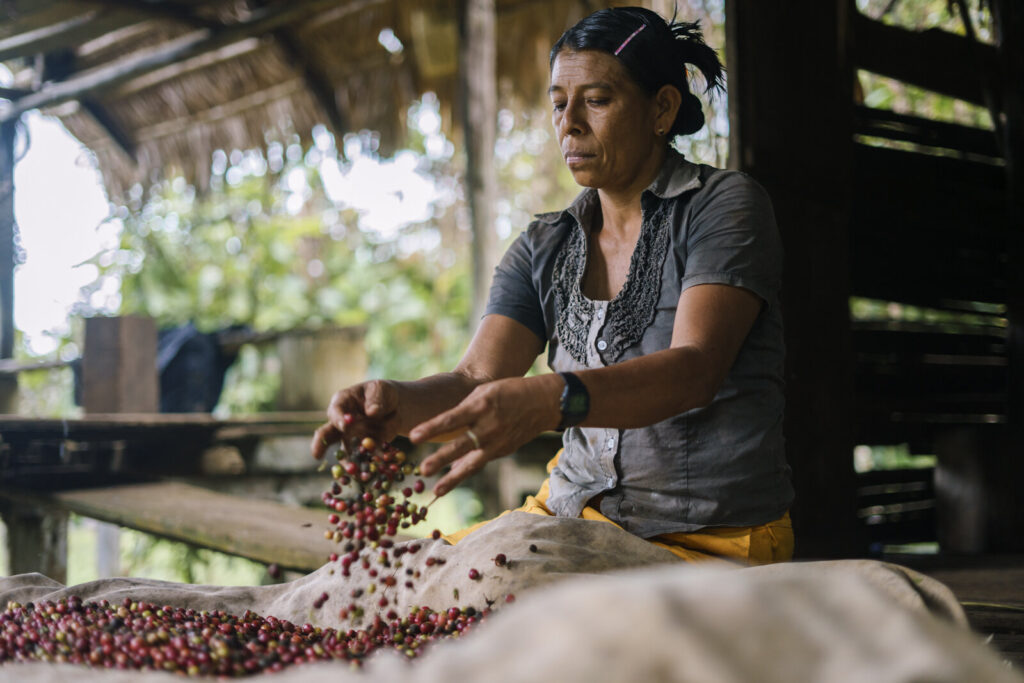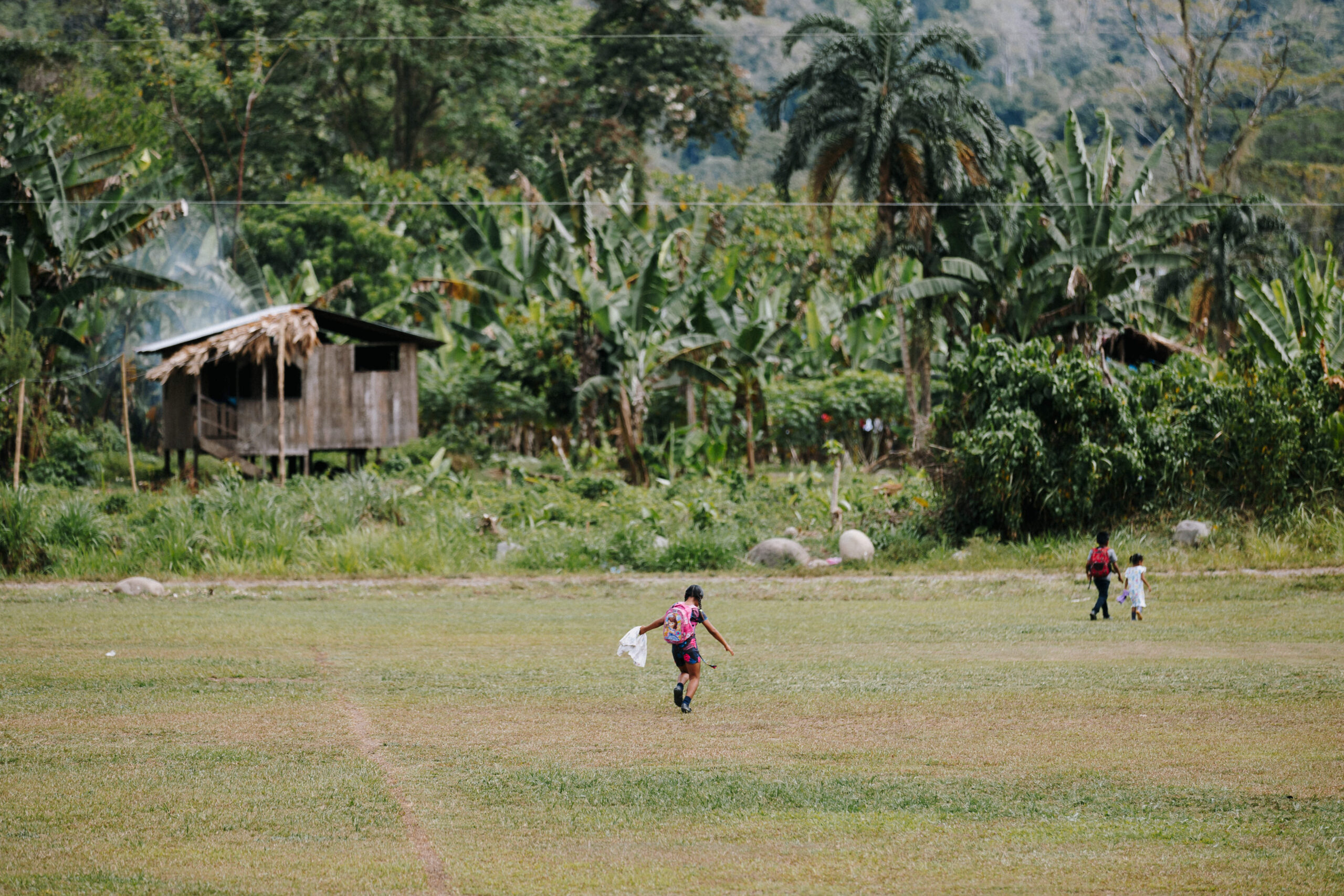Towards food
and seed
sovereignty


Regenerative agriculture is a diverse and evolving field that incorporates different interpretations and approaches, including permaculture, (syntropic) regenerative agroforestry, agroecology, biodynamic, and organic farming.
Despite the recent surge in interest, regenerative agriculture is an ancient concept that originated with Indigenous people across the globe over a thousand years ago. In many parts of the world, local and Indigenous communities recognize their interconnectedness with forests and rivers, their sacredness and the importance to protect biodiversity and conserve areas of cultural importance.
Regenerative agriculture is a holistic approach to relating to Nature in reciprocity and dignity as opposed to industrialized, conventional agriculture that is based on extraction and domination. Conventional agriculture and forestry together account for nearly 30% of global greenhouse gas emissions, 80% of global deforestation, 70% of freshwater use, and 70% of terrestrial biodiversity loss. The degradation and pollution of soil and water and the monoculturalization processes have coincided with an explosion of chronic disease and ecosystem collapse across the globe.
While agriculture and land use have a significant impact on the environment, they also offer a huge potential for ecosystem regeneration, enabling our global community to transition towards living in greater harmony with Nature.
Impact
In-Depth
Regenerative agriculture produces healthy food and enables food and seed sovereignty while preserving ecosystems, cultures, and biodiversity for future generations. Food sovereignty is the power and right to grow and decide one’s own food. Seed sovereignty is about protecting, growing, and sharing diverse seeds essential to preserving native ecosystems and Indigenous cultures.
Regenerative agriculture avoids harmful chemical inputs such as pesticides, herbicides, fertilizers, and hormones, reducing waterborne and diet-related illnesses. At the same time, it improves access to a variety of fresh, nutrient-rich foods, enhancing the overall health and nutrition of families and communities. Studies show that food produced through regenerative agriculture contains about 70% more nutrients than non-organic food.
Regenerative agriculture increases land productivity and creates numerous opportunities for meaningful, self-determined work. The enhanced productivity and resilience of the regenerative agricultural systems as well as the processing and commercialization of ecological products ensure a stable income.
Training Indigenous producers, especially women, in regenerative practices leads to the creation of fair jobs in line with their self-formulated visions and their care for the land and forests.
Women, and especially Indigenous women, have a key role in promoting regenerative agriculture. They share the understanding of the importance of stewarding healthy soil, water, and natural ecosystems and make decisions that strengthen the interrelated health and well-being of their communities, lands, and cultures.
Indigenous women’s leadership in regenerative agriculture enhances their social and economic opportunities and access to land rights, allowing them to challenge and transform traditional gender roles.
Regenerative agriculture supports the preservation of traditional knowledge systems and practices based on the partnership with Nature. Strengthening regenerative agriculture prevents the loss of Indigenous agricultural wisdom and ensures its revitalization and transmission to future generations.
Engaging in regenerative agriculture provides children and youth with knowledge and values that foster a sense of responsibility and connection to their land, strengthening their cultural identity and potential.
Farmers and producers share their experiences and innovations, creating a network of knowledge that strengthens community cohesion and resilience. Regenerative practices require an intimate knowledge of local conditions and a relationship with the living Earth, involving communication and co-creation with Nature, listening, observing and recognizing its need, cycles and beauty.
Regenerative agriculture enhances soil health, increasing its water-holding capacity and resilience to extreme weather conditions. It creates resilient ecosystems and sustainable food systems that support the interconnected health of ecosystems, animals and humans. By increasing organic matter, carbon is sequestered in the ground, preserving and strengthening biodiversity as well as empowering communities in the long-term.
Regenerative agriculture offers a viable alternative to extractive and (post)colonial industries, strengthening Indigenous autonomy and lifestyle while preserving their culture, rights, and connection to their land. Communities practicing regenerative agriculture are better organized and equipped to assert their land rights and protect their territories from extractive and illegal activities.

Explore our
Regenerative Agriculture
& Food Sovereignty
Program

